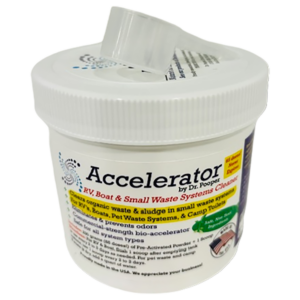Septic systems are essentially small-scale sewage treatment systems that break down organic waste. The process relies heavily on the bacterial communities present in the septic tank. Over time, homeowners and septic system maintainers have introduced septic bacterial additives to supposedly aid these bacterial communities, either by rejuvenating lost bacteria or boosting their activity.
How do Septic Additives Work?
Here’s how normal septic bacteria additives are supposed to work:
1. Bacterial Boost: Septic additives contain strains of bacteria that are believed to enhance or supplement the naturally occurring bacteria in the tank. By adding more bacteria, the logic is that the breakdown of waste can become more efficient.
2. Breakdown of Solid Waste: The primary aim of these additives is to accelerate the decomposition of solid waste, turning it into a liquid or gas which can be easily processed or released.
3. Clearing Out Blockages: Some additives claim to help reduce clogs and blockages in the septic system by breaking down hard-to-digest waste.
Do Septic Bacteria Additives Actually Work?
In Summary, NO. They don’t work. Septic bacteria additives don’t provide nearly enough bacteria to make a difference — not even remotely close. A drop in the bucket. Instead of a packet, you’d need multiple buckets to make an impact.
The efficacy of septic additives is a matter of debate:
Anecdotally, septic owners say things like, “I’ve been using
for 20 years and never had a problem.” You can also find just as many septic owners who say the additives are pointless.
Scientists and wastewater experts tend to have a more objective and science-based take on the issue…
Many experts, including those from the US Environmental Protection Agency (EPA), have expressed skepticism about the benefits of these additives. A septic system that’s functioning properly already has a robust microbial community capable of breaking down waste. Adding more bacteria might not offer any meaningful advantage.
A study carried out by environmental health and wastewater specialists to examine the effect of bacterial additives on 48 septic systems, published in the Journal of Environmental Health (PDF), concluded with the statement:
“None of the additives significantly increased the number of organisms in the septic tanks. In addition, the total mass load of bacteria in the control septic tanks exceeded the mass of bacteria added via these additives.”
Normal Bacterial Additives Don’t Do Enough
While normal septic bacteria additives don’t hurt anything, they don’t help either. Adding a tiny packet, or even a cup or a gallon, of bacteria to a system simply isn’t enough to make an impact on the total population of bacteria in the tank.
Multiply the Bacteria Instead of Adding
Let’s say your septic system has a gallon of naturally occurring bacteria in the tank. Adding a packet of a normal additive means you end up with a gallon PLUS a packet.
By comparison, Accelerator by Dr. Pooper® septic system cleaner is a BIO-ACCELERATOR that multiplies the bacteria in a septic tank by up to 40 times.
With Accelerator by Dr. Pooper®, that gallon of naturally occurring bacteria turns into 3o or 40 gallons of bacteria…
…and that is enough to make a difference — to create a large enough population of bacteria to clear the organic solids and the clogs, sludge, and scum that gets built up.
You can learn about commercial-strength Accelerator by Dr. Pooper Drain Field Cleaner here. It is our strongest and most effective total system cleaner.


Comments (0)
There are no comments for this article. Be the first one to leave a message!